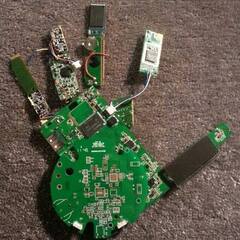is it safe to use pagefile on ssd (while all day gaming, with 4GB Ram)
Go to solution
Solved by Chiyawa,
Well, it's hard to predict how your SSD usage will be because it depends on the work load of your system. If you are constantly out of physical RAM and your system constantly swapping data in and out of the SSD, then your SSD will be under stress and might fail prematurely (remember, SSD can only write to a memory cell so many times before the memory cell is burnt out). If that is your use case, you might need to get a good SSD with DRAM cache and preferably using TLC NAND flash instead of QLC.
I would strongly suggest you to upgrade your RAM if possible.



.thumb.jpeg.9babd505c85c11addf31a285a02547cc.jpeg)












Create an account or sign in to comment
You need to be a member in order to leave a comment
Create an account
Sign up for a new account in our community. It's easy!
Register a new accountSign in
Already have an account? Sign in here.
Sign In Now